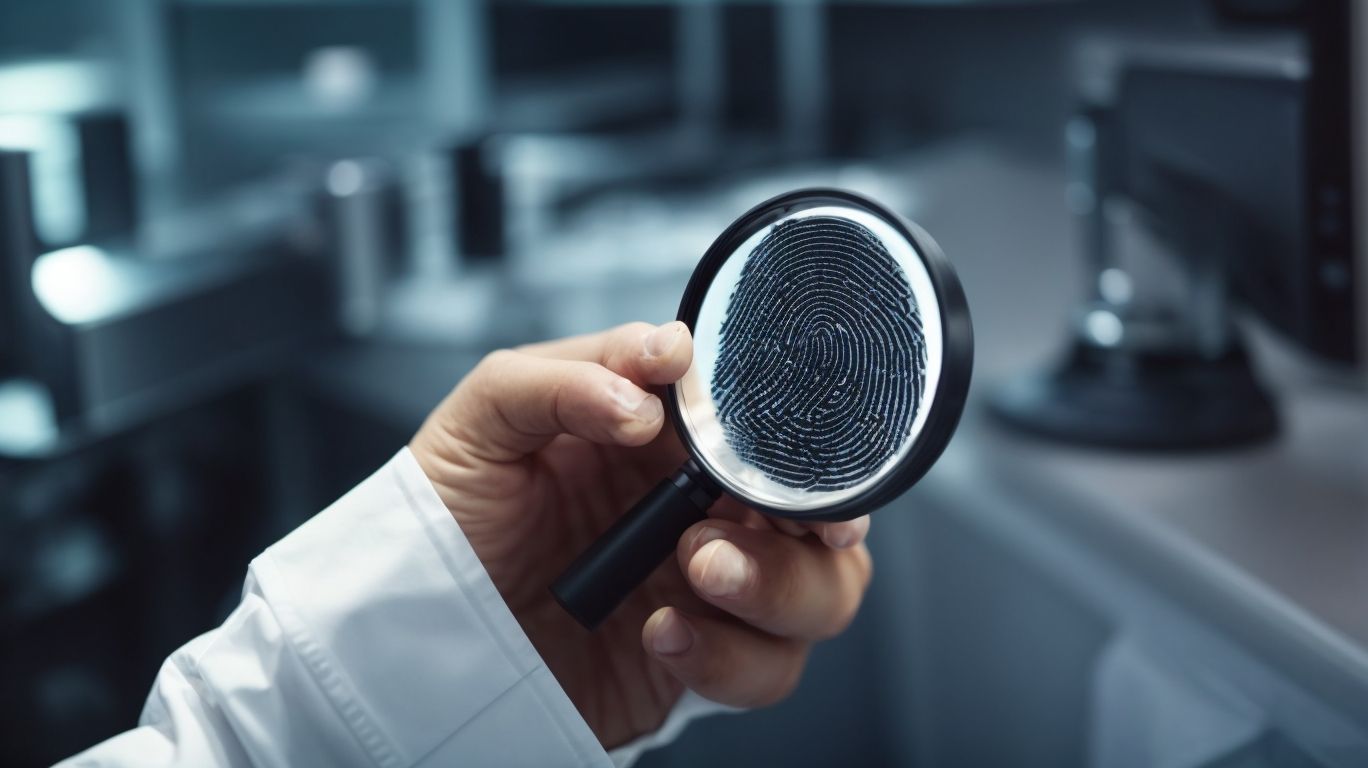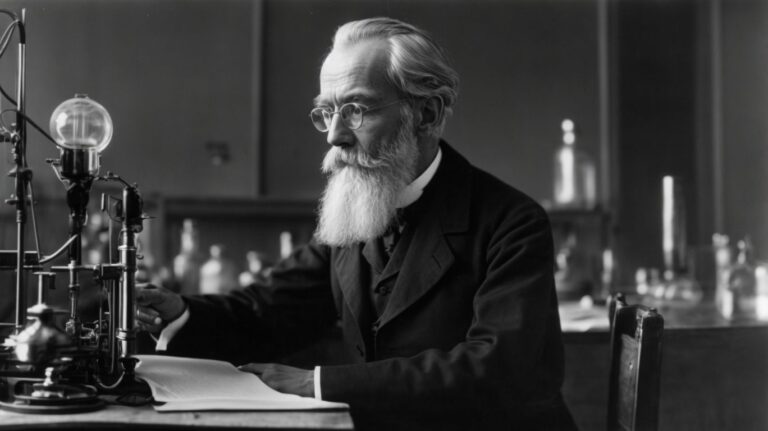Have you ever wondered who the founder of forensic psychology is? What exactly is forensic psychology and how does it differ from criminal psychology?
In this article, we will explore the key contributions of the founder of forensic psychology, including the development of the first psychological test for court use and the introduction of the insanity defense. We will also delve into the main areas of focus in forensic psychology, such as criminal profiling and mental health evaluations for legal proceedings.
We will discuss the ethical considerations in forensic psychology, including confidentiality and cultural competence. So, let’s dive in and learn more about this fascinating field!
Contents
- 1 Who is the Founder of Forensic Psychology?
- 2 What is Forensic Psychology?
- 3 What Are the Key Contributions of the Founder of Forensic Psychology?
- 4 What Are the Main Areas of Focus in Forensic Psychology?
- 5 What Are the Ethical Considerations in Forensic Psychology?
- 6 Frequently Asked Questions
- 6.1 Who is considered the founder of forensic psychology?
- 6.2 What was Hugo Münsterberg’s contribution to forensic psychology?
- 6.3 How did Hugo Münsterberg become interested in forensic psychology?
- 6.4 What other areas of psychology did Hugo Münsterberg study?
- 6.5 Did Hugo Münsterberg’s work in forensic psychology receive any criticism?
- 6.6 How has forensic psychology evolved since Hugo Münsterberg’s time?
Who is the Founder of Forensic Psychology?
Forensic psychology, a field at the intersection of psychology and the legal system, was pioneered by influential figures such as Hugo Munsterberg, William Marston, James McKeen Cattell, and Albert von Schrenck-Notzing.
These visionaries made significant contributions that shaped the landscape of forensic psychology. For instance, Hugo Munsterberg, a German psychologist, highlighted the application of psychological principles in legal settings, paving the way for the field’s development. William Marston, known for creating the Wonder Woman character, also delved into deception detection and forensic analysis techniques, leaving a lasting impact.
What is Forensic Psychology?
Forensic psychology involves the application of psychological principles within the legal system, aiding in assessments, expert testimonies, and understanding criminal behavior.
One key aspect of forensic psychology is the role it plays in evaluating individuals involved in legal matters, such as determining competency to stand trial or assessing the mental state at the time of an offense. By applying psychological theories and methodologies, forensic psychologists provide valuable insights into the motivations and mindset of individuals within the criminal justice system.
Forensic psychologists often serve as expert witnesses in court proceedings, offering their expertise in areas like assessing credibility, evaluating witness testimonies, and providing psychological explanations for behavior. They may also conduct psychological assessments to assist judges and juries in understanding complex psychological issues that are relevant to a case.
What is the Difference Between Forensic Psychology and Criminal Psychology?
Forensic psychology and criminal psychology share a focus on understanding human behavior within legal contexts, but while forensic psychology applies psychological principles to legal matters, criminal psychology primarily examines criminal behavior for broader research purposes.
Forensic psychology involves applying psychological knowledge to criminal investigations, court proceedings, and other legal settings to provide insights into criminal minds and behaviors.
On the other hand, criminal psychology delves into the study of criminal behavior, motivations, and patterns to contribute to academic research, policy development, and crime prevention strategies.
What Are the Key Contributions of the Founder of Forensic Psychology?
The founding figures of forensic psychology, including Hugo Munsterberg, William Marston, James McKeen Cattell, and Albert von Schrenck-Notzing, made significant contributions to the field, shaping its development.
Hugo Munsterberg, a German-American psychologist, is often credited for his pioneering work in applying psychological principles to legal matters, laying the groundwork for forensic psychology as a distinct discipline.
- William Marston, known for creating the Wonder Woman comic character, also made important strides in developing the lie detector test, a key tool in forensic investigations today.
James McKeen Cattell, an influential psychologist, emphasized the importance of utilizing psychological assessments in criminal cases and witness testimonies.
Austrian physician Albert von Schrenck-Notzing’s research on suggestive influence and memory distortion greatly impacted the understanding of witness reliability and the potential for false memories in legal settings.
Development of the First Psychological Test for Court Use
One of the landmark achievements by the founders of forensic psychology was the development of the first psychological test specifically designed for court proceedings, revolutionizing expert testimony.
This groundbreaking test not only marked a pivotal moment in the evolution of forensic psychology but also had a profound impact on the legal system as a whole. By introducing a scientific approach to assessing the mental state of individuals involved in legal cases, this test brought a new level of credibility and objectivity to expert testimonies presented in court. The use of psychological assessments enabled attorneys, judges, and juries to better understand the complexities of human behavior and make more informed decisions based on empirical evidence.
Introduction of the Insanity Defense
Another crucial contribution by the early figures in forensic psychology was the introduction and refinement of the insanity defense, reshaping perspectives on mental health within legal contexts.
Forensic psychologists played a key role in emphasizing the significance of mental health evaluations in legal proceedings. Through their expertise in assessing mental states and understanding behavioral patterns, they helped establish a framework for determining an individual’s sanity at the time of the offense. This framework not only influenced legal outcomes but also shed light on the complexities surrounding criminal behavior.
By diving into the psychological aspects of criminality, forensic psychologists paved the way for a deeper comprehension of the motives behind unlawful actions. Their insights have been instrumental in challenging traditional notions of culpability and leading to more nuanced approaches to criminal justice.
Establishment of the First Forensic Psychology Laboratory
The establishment of the first forensic psychology laboratory by the founding figures provided a foundational setting for groundbreaking research on witness memory and the psychology of testimony.
This marked a significant turning point in the study of human behavior within legal contexts, as it allowed researchers to delve deeper into the intricacies of how memory functions and influences witness statements. Through systematic experimentation and analysis, scholars in these laboratories were able to uncover fundamental truths about how memory is encoded, stored, and retrieved, shedding light on the complexities of eyewitness testimony and the factors that can impact its accuracy.
- Landmark study conducted in these pioneering laboratories focused on the effects of leading questions on eyewitness testimony, revealing how subtle phrasing and framing can significantly alter recollections.
Such research paved the way for the development of evidence-based investigative techniques and protocols used in legal settings to enhance the reliability of witness accounts.
Pioneering Research on Eyewitness Testimony
The early pioneers of forensic psychology conducted groundbreaking research on eyewitness testimony, shedding light on the complexities of memory and perception within legal contexts.
Their efforts helped establish a more scientific approach to understanding how memories are formed and how they can be influenced by external factors.
Key studies by these visionaries laid the foundation for principles still utilized in courtrooms today, such as the malleability of memory and the impact of leading questions on recall accuracy.
Their work not only enhanced the reliability of eyewitness accounts but also highlighted the importance of considering psychological factors in legal decision-making processes.
What Are the Main Areas of Focus in Forensic Psychology?
Forensic psychology encompasses diverse areas of focus, including criminal profiling, mental health evaluations in legal settings, jury consulting, and offender treatment.
One significant aspect of forensic psychology is criminal profiling, which involves analyzing behavioral patterns to create profiles of potential suspects in criminal investigations. These profiles help law enforcement agencies narrow down their search and prioritize leads based on psychological characteristics of the perpetrator. Mental health assessments in legal contexts are another crucial component, where forensic psychologists evaluate defendants’ competency to stand trial, sanity at the time of the offense, and potential risk of future violence.
Criminal Profiling
Criminal profiling, a key area in forensic psychology, involves analyzing behavioral patterns and characteristics to aid in identifying and understanding criminal behavior.
Psychological research has played a significant role in shaping the methods and techniques used in criminal profiling. By diving into the complexities of the human mind, psychologists have provided valuable insights that have enhanced the accuracy and effectiveness of profiling practices. Understanding the psychological underpinnings of criminal behavior, such as motivations, triggers, and thought processes, can offer crucial clues that aid investigators in narrowing down suspects and solving cases.
Mental Health Evaluations for Legal Proceedings
Forensic psychologists conduct mental health evaluations to assess individuals involved in legal proceedings, providing critical insights for forensic assessments and court decisions.
These evaluations involve a comprehensive assessment of the individual’s mental state, personality traits, cognitive functioning, and any potential psychological disorders they may be experiencing. The process typically includes reviewing relevant medical records, conducting interviews with the individual, administering standardized psychological tests, and gathering collateral information from family members or other sources.
The goal of these evaluations is to determine the individual’s competency to stand trial, assess their mental state at the time of the offense, evaluate the presence of mental health conditions that may impact their legal responsibility, and provide recommendations for the court regarding treatment or management in the legal system.
Jury Selection and Consultation
Forensic psychologists offer expertise in jury selection and consultation, aiding law enforcement and legal professionals in forming impartial and effective juries.
By applying their knowledge of human behavior and psychological principles, these professionals play a crucial role in identifying potential biases and ensuring that jurors can make decisions based on objective evidence.
They conduct thorough assessments to evaluate each juror’s attitudes, beliefs, and experiences that might impact their judgment during the trial.
Moreover, forensic psychologists assist legal teams in developing strategies to present evidence in a manner that resonates with jurors and enhances the overall trial process.
Treatment of Offenders
Forensic psychologists engage in the treatment and rehabilitation of offenders, applying psychological interventions within correctional settings to address criminal behavior.
These professionals play a crucial role in analyzing and understanding the root causes of criminal behavior, often diving into the individual’s past experiences, traumas, and mental health issues to tailor their treatment approach. By utilizing various assessment tools and therapeutic techniques, forensic psychologists aim to help offenders gain insight into their actions and develop coping mechanisms to prevent future criminal behavior. Through individual and group therapy sessions, cognitive-behavioral therapy, and anger management strategies, they strive to promote positive change and enhance the offender’s chances of successful reintegration into society.
What Are the Ethical Considerations in Forensic Psychology?
Forensic psychology grapples with various ethical considerations, including confidentiality, cultural competence, dual relationships, and the importance of informed consent.
Confidentiality is a key tenet in forensic psychology, ensuring that information shared during assessments and interventions is kept private and only disclosed under specific circumstances.
Cultural competency plays a crucial role in understanding and respecting diverse backgrounds, beliefs, and values that may impact an individual’s behavior and mental health.
The concept of dual relationships raises concerns about the potential conflict of interest when a psychologist may hold multiple roles with a patient, compromising objectivity.
Informed consent underscores the significance of clients fully understanding the nature, purpose, and potential risks of psychological assessments and treatments before providing consent.
Confidentiality and Privilege
Maintaining confidentiality and privilege is a critical ethical consideration in forensic psychology, ensuring the protection of sensitive information within legal contexts.
Confidentiality in forensic psychology acts as a fundamental aspect of building and maintaining trust between psychologists, clients, and the legal system. It establishes a safe space where individuals can disclose personal and often distressing information without fear of judgment or unauthorized disclosure.
The concept of privilege in this field grants a level of legal protection to the information shared during psychological evaluations and treatments. This shield helps foster open communication, thereby allowing psychologists to delve deeper into the complexities of the human mind without hindrance.
Dual Relationships
Managing dual relationships is a key ethical concern for forensic psychologists, requiring clear boundaries, competency assessments, and informed consent to uphold professional standards.
In the field of forensic psychology, practitioners often find themselves navigating intricate interpersonal dynamics within the legal system. The process of competency assessments plays a crucial role in evaluating the mental capacity of individuals involved in legal proceedings, ensuring fairness and justice.
Meticulous adherence to informed consent protocols is essential to guarantee that clients fully understand the nature of their relationship with the psychologist and the anticipated outcomes of their interaction.
Maintaining professional boundaries is paramount to preserve objectivity and safeguard the integrity of the forensic psychologist’s practice, minimizing the risk of conflicts of interest and bias.
Competency and Informed Consent
Ensuring competency and obtaining informed consent are ethical imperatives in forensic psychology, safeguarding the well-being of clients and upholding legal standards in assessments and interventions.
Competency evaluations are crucial in determining if a client has the cognitive abilities to understand legal proceedings and make informed decisions. Informed consent procedures serve as a cornerstone in building trust and transparency between psychologists and clients, ensuring that individuals are fully aware of the nature and purpose of the assessments or interventions.
By adhering to these practices, forensic psychologists not only protect the rights and dignity of their clients but also comply with legal mandates that govern their profession. Thorough competency assessments and informed consent processes contribute to the overall integrity and credibility of forensic psychological evaluations.
Cultural Competence and Diversity
Cultural competence and embracing diversity are essential ethical considerations in forensic psychology, ensuring respectful and effective interactions with individuals from diverse backgrounds and communities.
Forensic psychologists must possess a deep understanding of various cultural norms, values, and belief systems to navigate complexities in their professional practice. By acknowledging and respecting cultural differences, professionals can build trust and rapport with clients, ultimately enhancing the quality of assessments and interventions.
Incorporating diverse perspectives allows for a more comprehensive examination of case details, contributing to a more nuanced understanding of motivations and behaviors within different cultural contexts. Recognizing the impact of ethnicity, religion, gender, and other cultural factors can lead to more culturally sensitive and effective outcomes in forensic evaluations and treatments.
Frequently Asked Questions
Who is considered the founder of forensic psychology?
The founder of forensic psychology is Hugo Münsterberg, a German-American psychologist who is credited with establishing the field in the early 1900s.
What was Hugo Münsterberg’s contribution to forensic psychology?
Hugo Münsterberg is considered the founder of forensic psychology for his groundbreaking work in applying psychological principles to the legal system. He published the first book on the topic in 1908, titled “On the Witness Stand.”
How did Hugo Münsterberg become interested in forensic psychology?
Hugo Münsterberg’s interest in forensic psychology was sparked by his background in experimental psychology and his belief in the potential of psychology to inform the legal system.
What other areas of psychology did Hugo Münsterberg study?
In addition to his work in forensic psychology, Hugo Münsterberg studied and wrote about topics such as industrial and organizational psychology, social psychology, and clinical psychology.
Did Hugo Münsterberg’s work in forensic psychology receive any criticism?
Yes, some of Hugo Münsterberg’s ideas and methods were met with criticism and skepticism from other psychologists and legal professionals. However, his contributions are still recognized as foundational to the field of forensic psychology.
How has forensic psychology evolved since Hugo Münsterberg’s time?
Forensic psychology has evolved significantly since Hugo Münsterberg’s time, incorporating advancements in technology and research methods. It has also expanded to include various subfields, such as criminal profiling, correctional psychology, and police psychology.



